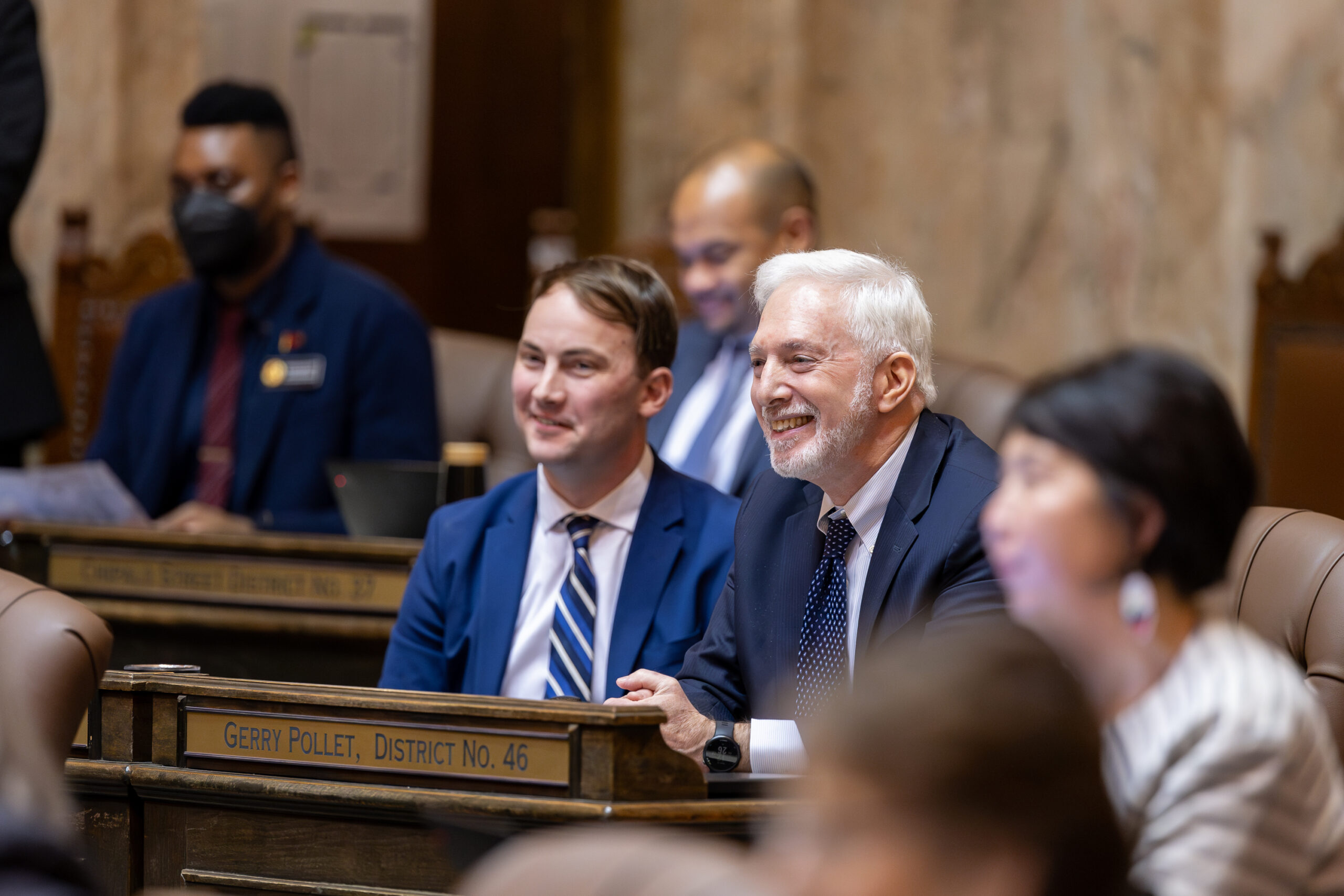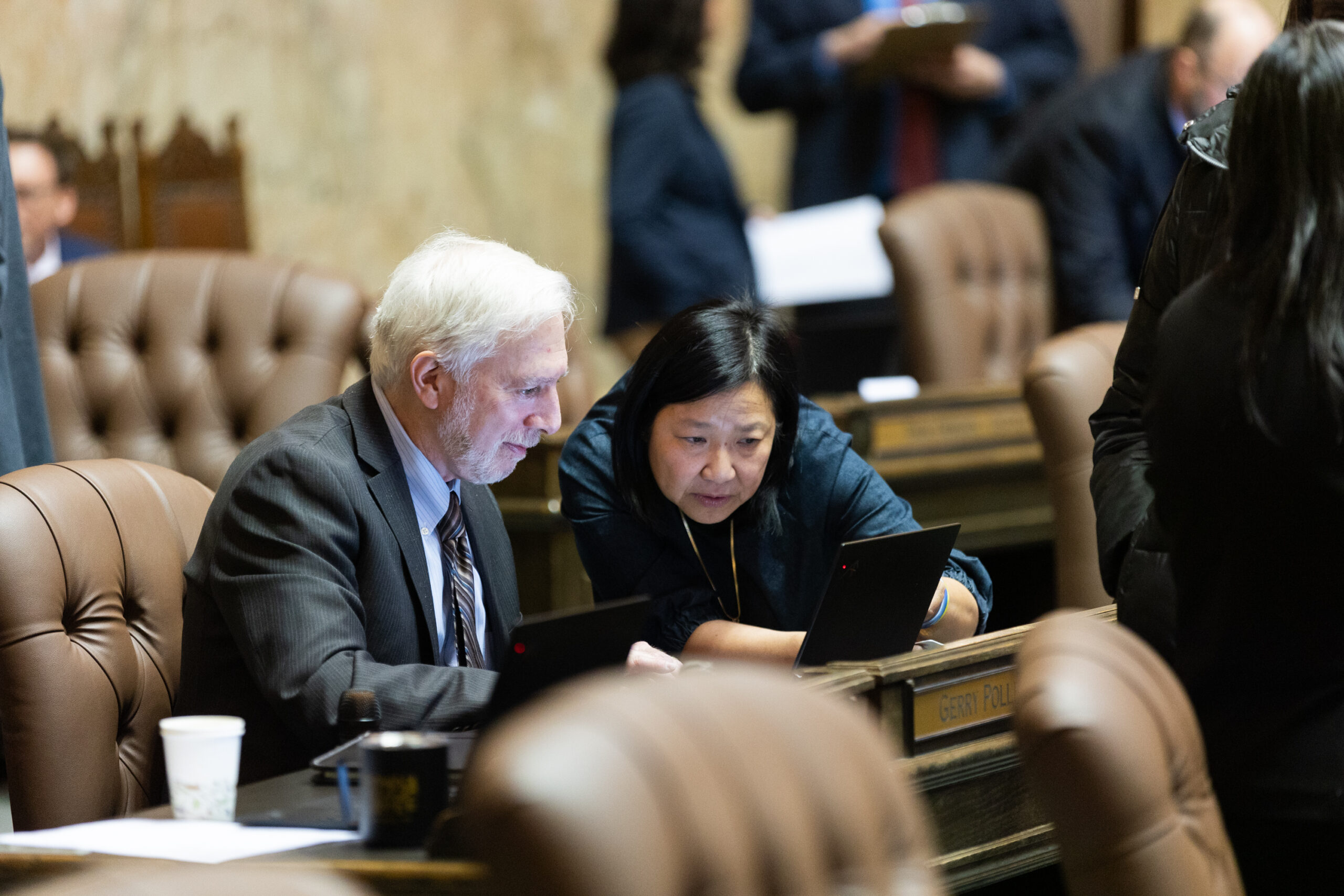Friends and neighbors,
I’m sharing what newspapers across our state are reporting: “Washington takes ‘historic’ step toward full funding for special education.”

After 13 years of my advocating to end an unconscionable and, I believe, unconstitutional cap on the number of students with disabilities that the state will fund special education services for in each school district, the legislature has finally passed my proposal to end the cap.
On April 16, I led the floor debate on passage of SB 5263 to fund special education and end the cap.
You can watch my floor speech here.
With passage of SB 5263, we’re no longer telling schools they can only serve a certain percentage of students with disabilities — we’re telling them to serve every child.
As the Washington State Standard reported – and many news outlets across the state reprinted:
Rep. Gerry Pollet, D-Seattle, who called the cap “unconscionable and maybe unconstitutional,” said its elimination is “a historic achievement.” It commits the state to amply fund the education of every child with a disability, he said.
This is the culmination of years of effort to build bipartisan understanding and support around a simple truth: educational equity is a constitutional promise, not a funding cap.
After having the Legislative Auditor confirm that our failure to fund special education is the major driver of our school districts’ deficits, the bill is based on legislation I developed over the past year to address, for the first time, all the interlocking gears for special education funding. In addition, the bill supports inclusive classrooms and puts real tools in place for districts to meet student needs.
With this legislation and other bills in the works, school districts could see as much as $870 million or more over the next four years. It’s a step forward on fully funding special education and schools (goals I will continue to work towards with all my heart) and a historic day for the civil rights and education of our children with disabilities in Washington.
Our Latest Progressive Revenue Package

House and Senate Democrats released a revised progressive revenue plan recently that would raise nearly $12 billion over four years to fund public schools, community safety, and essential services — all making our tax system more fair while modernizing Washington’s outdated tax code.
Business & Occupation (B&O) Tax Reform: HB 2081 and SB 5815 increases rates on high-profit industries, raises surcharges on big banks and tech services, and adds a temporary 0.5% surcharge on companies making over $250 million annually.
Capital Gains & Estate Tax Reform: HB 2082 and SB 5813 create a tiered capital gains tax, adding a 2.9% surcharge on profits above $1 million annually. They also exempt estates under $3 million and increase rates on larger estates, with all revenue dedicated to education.
Closing Ineffective Tax Exemptions: SB 5794 repeals tax breaks that have repeatedly been found to offer no public policy benefit while costing us hundreds of millions in revenues that we need for education and health care. Several are exemptions which I have led repeated efforts to repeal. The bill adds clearer policy goals for future evaluation to others to improve accountability.
Property Tax Reform: The state’s property tax is constitutionally limited to funding our public schools to fund our schools. The Tim Eyman initiative 1% cap on growth in state property tax revenue has knee-capped funding for our schools, especially special education. Representative Steve Bergquist and I introduced HB 2049 to raise the 1% property tax growth cap to account for population and inflation (up to 3%) and provide desperately needed school funding. The bill is partnered with legislation to expand the senior and disabled property tax exemption, reducing costs for lower-income residents.
Sales Tax Modernization: HB 2083 and SB 5814 expand the sales tax to digital services like web design, IT consulting, and staffing services, and end exemptions for automated digital ads. A new tax on new nicotine products aimed at youth is also included.
This revised proposal balances short-term budget needs with long-term tax fairness and stability, with final passage needed before the session ends April 27.
Plans for the interim
We are rapidly making our way toward the end of the session. This means I will soon have updates and summaries on the bills that passed and where our budgets ended up. Be on the lookout for that.
After transitioning out of session, I will start ensuring that bills I passed this year are properly implemented and working on bills for next year. This means meeting with stakeholders and hammering out the details so the legislation gets to a place where it can pass. I will be holding my “traveling town halls” once a month on weekend mornings for you to join me and other neighbors to discuss legislation and public policy. Email me for invites.
Sincerely,

Rep. Gerry Pollet
